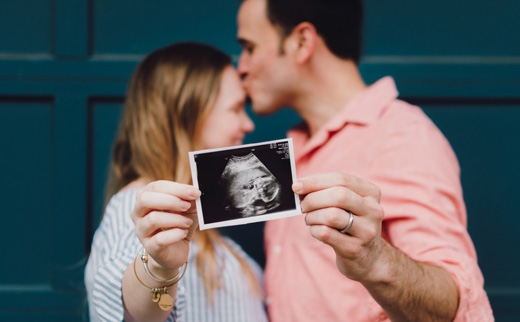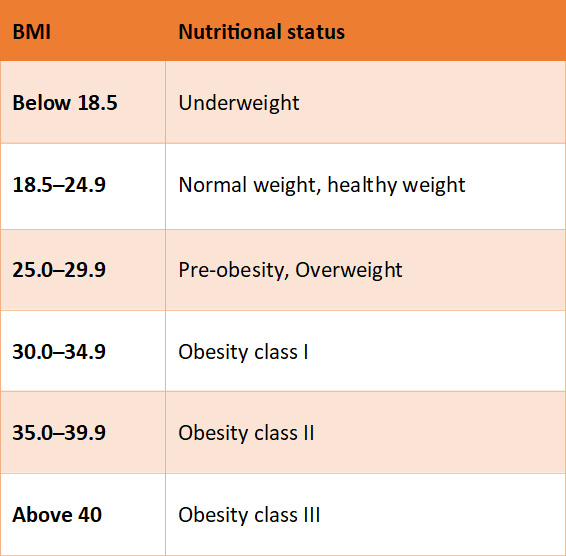
Body mass index (BMI) may affect a woman’s chance of successful of infertility treatment, as fecundity was found to be lower in underweight and obese women undergoing IVF compared to those with normal body weight. Further, obese women were more likely to have IVF cycle cancellation, lower pregnancy, and live birth rates. Overweight men also had a lower likelihood of pregnancy compared to men of a normal weight.
Body mass index (BMI) is an approximate measure of your best weight for health. It is calculated by dividing your weight in kilograms by your height in meters squared (m2).
For adults over 20 years old, BMI falls into one of the following categories:

When BMI is below 18.5, hormone imbalances that affect the ovulation and conception and menstrual disorders can reduce a woman's fertility. Compared to women in the healthy weight range, low weight women take more than a year to conceive. A dietician can help you gain weight by adjusting your diet.
Women whose BMI is more than 30 may have problems conceiving. Obesity is also associated with polycystic ovary syndrome (PCOS) a common cause of low fertility or infertility. It can also lead to difficulties with IVF-ICSI treatment.
If your partner's BMI is more than 30, his fertility is likely to be lower than normal. This might be related to a combination of factors such as hormonal problems, erection problems and other health conditions linked to obesity.
Weight loss in overweight men can significantly increase total sperm count and quality. As sperm production takes about three months, reaching a healthier weight at least three months before IVF treatment can improve sperm health and the chance of conception.
When you make these lifestyle changes even if you don't lose weight, it will make a difference in your overall health. Start making these changes before you conceive and continue them throughout your pregnancy and beyond.